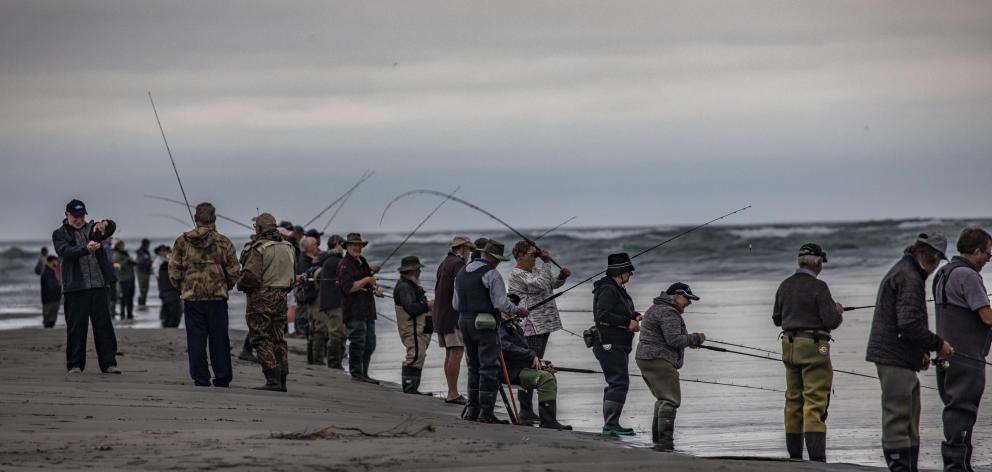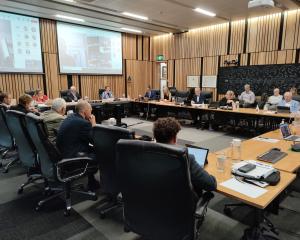
The event, coming at the end of the sea-run salmon fishing season, is a celebration of the wild sea-run salmon fishery and the rivers that support them.
It has become more about getting together, enjoying a chat, partaking in the free Hellers sausages, and the lucky prize draw sponsored by local businesses than the fishing competition.
Anglers needed only to show their fishing licence at the Fish & Game tent to go in the draw for prizes from Blackwells Kaiapoi, Hunting and Fishing Tower Junction, Rivers to Ranges Rangiora and Desolve clothing.
The competition began more than 45 years ago after four honorary rangers fishing together reeled in a child’s fishing rod and reel that floated past. It became a trophy awarded for the heaviest fish caught in the competition each year.
Two other trophies are also awarded Year, which went to Lindsay Smith, and the Fishing Personality of the Year, which went to Colin and Diane Eaton for their efforts in raising the profile of the local salmon fishery.
A near-continuous free sausage sizzle kept the anglers fuelled up, with more than 300 sausages consumed by anglers who arrived before dawn to start fishing.
North Canterbury Fish & Game chief executive Rasmus Gabrielsson says the event is about anglers and rangers getting together, discussing the season, and highlighting the importance of salmon to the region.
Sea-run salmon are facing challenges, with poor returns, ineffective fish screens and warming ocean temperatures affecting the size and timing of the run. But the work of Fish & Game and anglers to highlight the conservation and habitat protection work required is starting to pay off, with water issues now understood by most New Zealanders.














